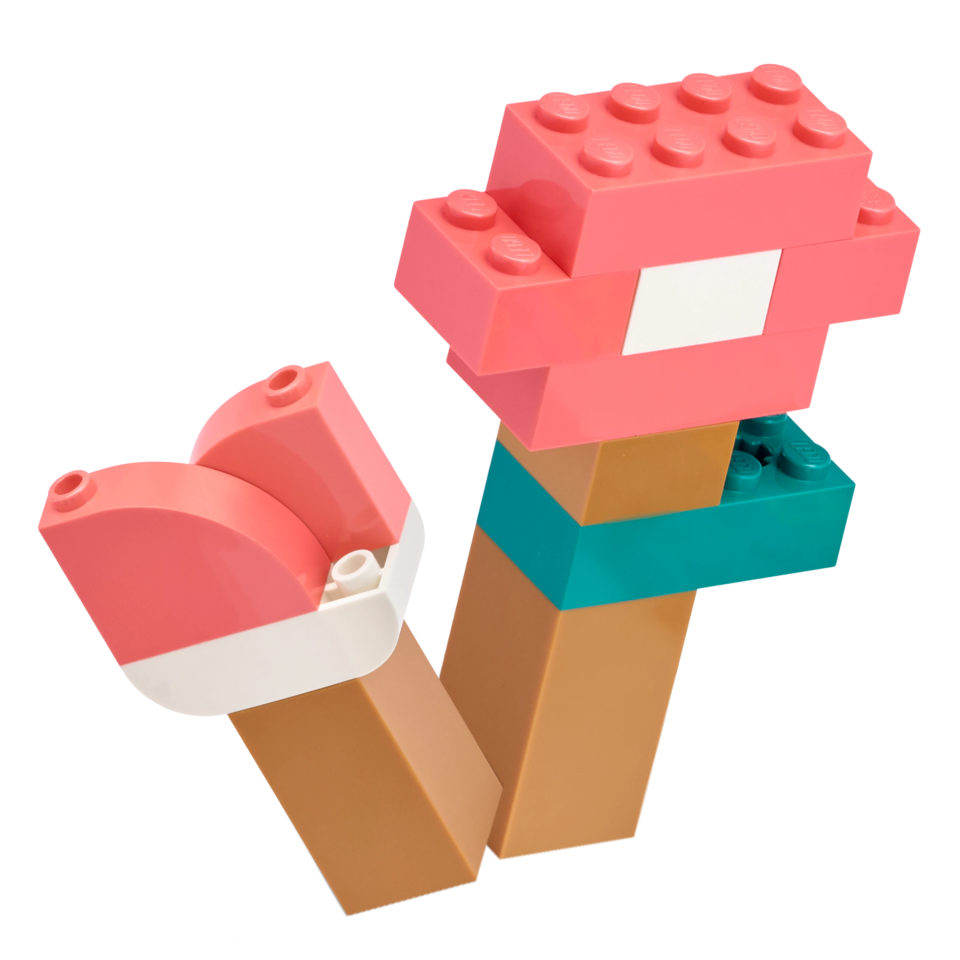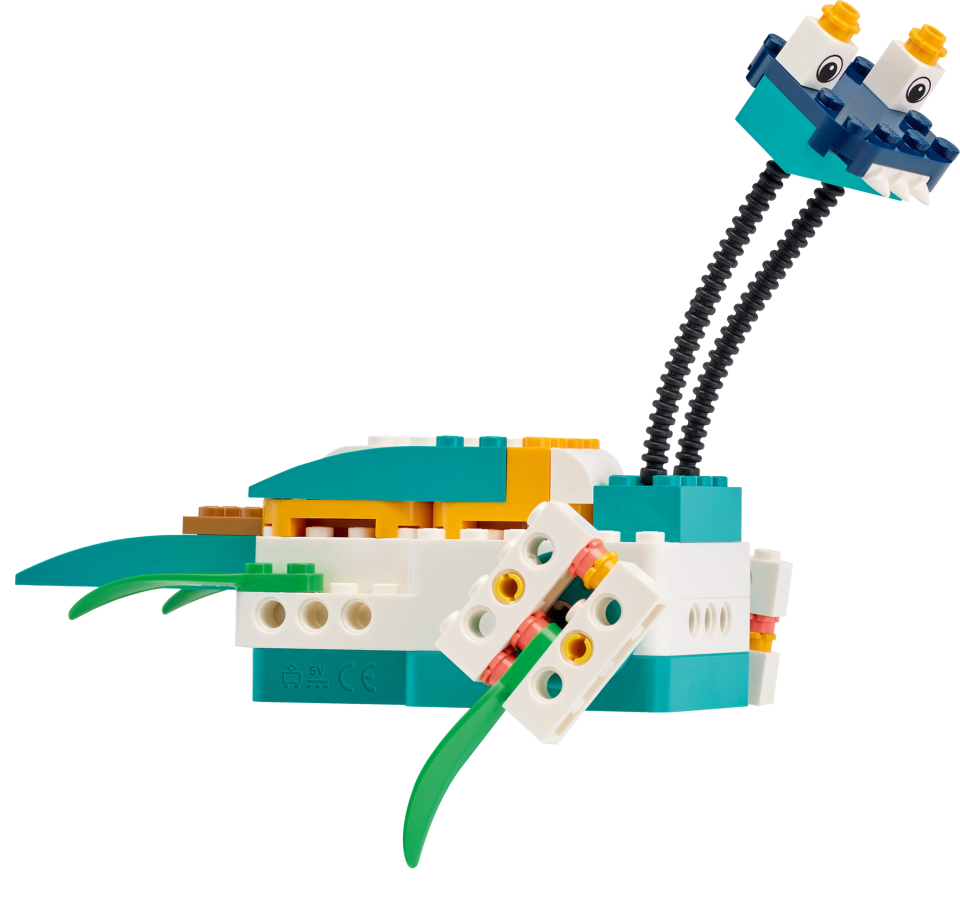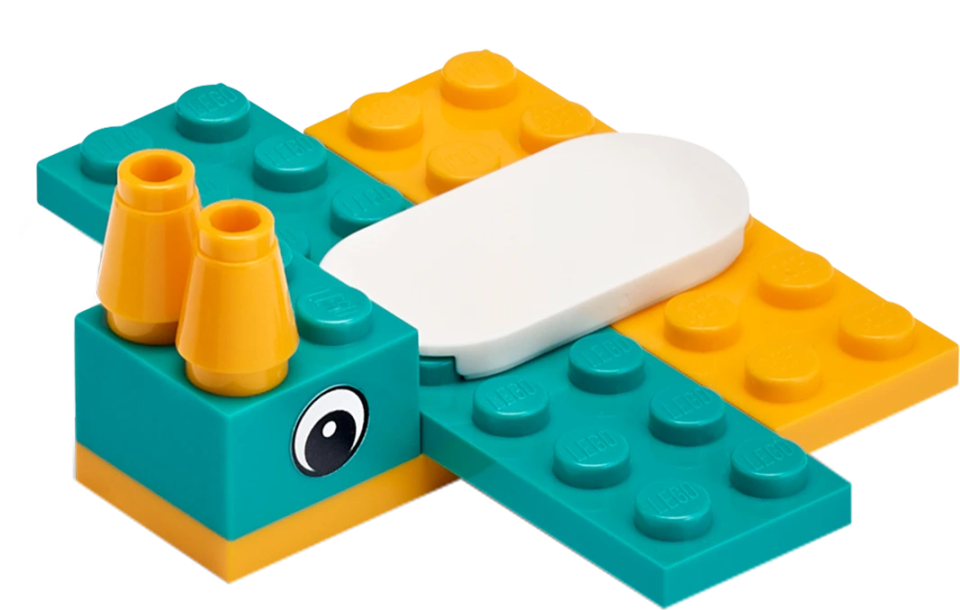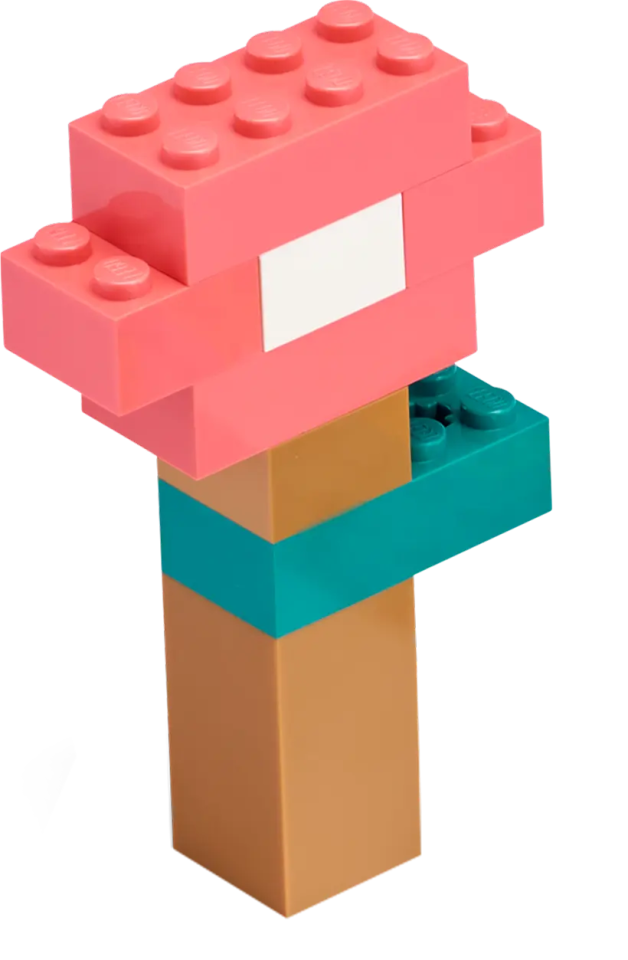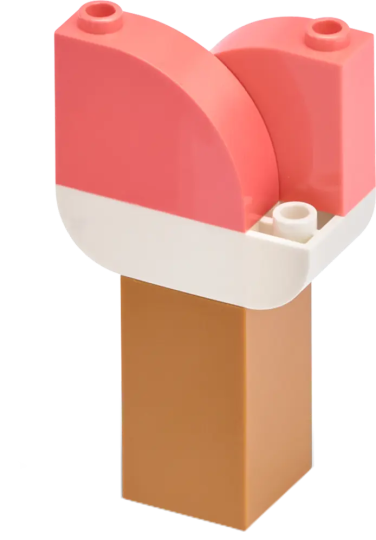Different Ending
Understand story elements like plot and events and how a story can be changed.
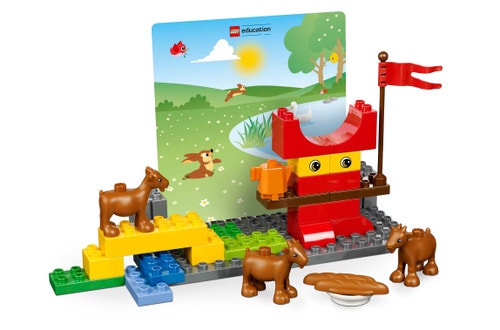
Connect
Read the story The Three Billy Goats Gruff (or substitute a different story that is more relevant to your class).
Prompt a discussion about story plots by explaining that main events (i.e., the events that take place in a story) make up the story’s plot. For instance, in The Three Billy Goats Gruff, each time a Billy Goat sets foot onto the bridge, that is a main event and part of the plot.
Ask the children to recall the main events of the story. Consider asking questions like:
- What happened at the beginning of the story?
- What were the main events in the middle of the story?
- What happened at the end of the story?
Construct
Tell the children that stories are sometimes rewritten with completely different endings.
- Ask the children to build a scene depicting an alternate ending to The Three Billy Goats Gruff. Older children may work in pairs.
- Encourage the children to build their scene and then take turns role-playing the alternate ending using the billy goat figures. If they have difficulty thinking of a new ending, brainstorm a list as a class or show an example of an alternate ending like a scene of the troll and Billy Goats Gruff becoming friends and having a tea party (see below).
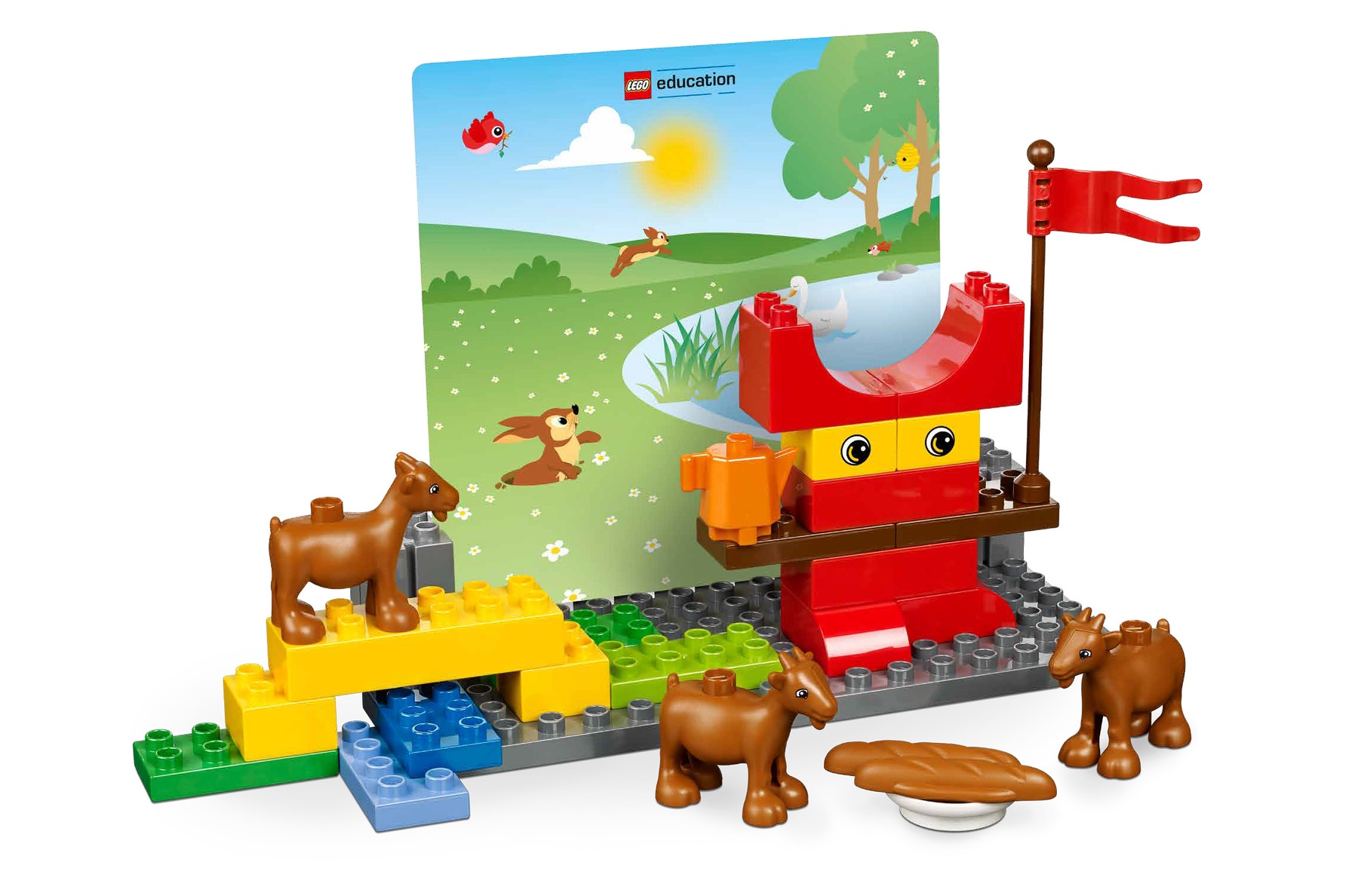
Contemplate
When the children have finished building, encourage each child to show and describe his or her alternate ending. Consider asking questions like:
- How did you come up with your alternate ending?
- How is your ending different from the original?
- What is the main event in your alternate ending?
After each child has shared, discuss how everyone came up with different endings even though they used the same characters. Explain that everyone has a unique perspective and it is interesting to hear the thoughts of others.
Continue
Tell the children that changing the plot of stories can be interesting, but that authors sometimes change the settings too. Ask the children to build and retell The Three Billy Goats Gruff using a different setting (see the illustration below for an inspirational image of a space setting). Older children may work in pairs.
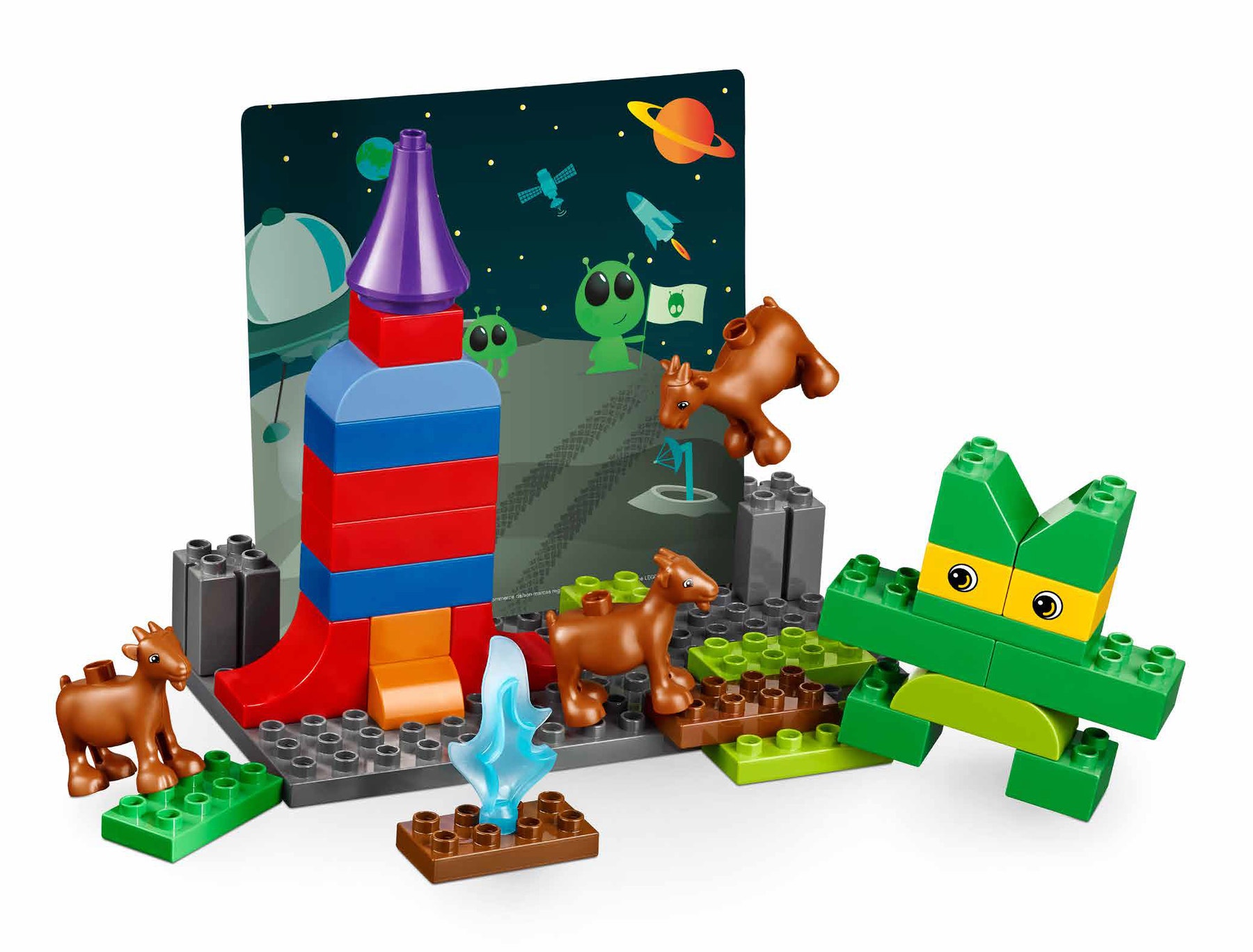
Remind the children to think about how a story’s setting affects the characters.
Consider asking questions like:
- What would the characters do differently in this setting?
- How would the troll act in this setting?
Encourage the children to build their scenes and then take turns adding the billy
goat figures and role-playing the beginning, middle, and end of the story.
Did you notice?
Ask guiding questions to elicit students’ thinking and their decisions while ideating.
Observation Checklist
- Review the learning objectives and educational standards addressed in this lesson (Teacher Support box).
- Share specific student responses and behaviors at different levels of mastery.
Use the following checklist to observe students’ progress:
- Students are able to express their thoughts, ideas, and opinions to others.
- Students are able to understand the fundamental narrative structure and elements
Supporto per l'insegnante
Children will:
- Understand story elements like plot and main events
- Practice recalling and retelling a story
- Alter an existing story
- Compare and contrast versions of stories
For up to 6 children.
- Children are able to express their thoughts, ideas, and opinions to others.
- Children are able to understand fundamental narrative structure and elements.
